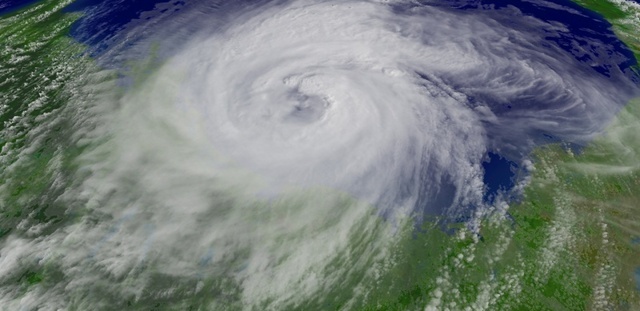
US public opinion about climate change has been riding a roller coaster over the past decade. After signs of growing acceptance and emphasis around 2006 and 2007, a precipitous decline brought us back to where we started, with fully a quarter of the public not even thinking that the planet has warmed up. It's not shocking that concerns about climate change would take a back seat to the economic recession, but that doesn't explain why some are skeptical that global warming is even real.
Since economic turmoil does not extend to past temperature measurements, it seems clear that public acceptance of the data depends at least partly on something other than the data itself. So the natural question is—what’s driving public opinion? Why the big shifts? The answer to that question may hold the key to the US' response to the changing climate.
A recent study published in Climatic Change evaluates the impact of several potential opinion drivers: extreme weather events, public access to scientific information, media coverage, advocacy efforts, and the influence of political leaders. These are compared to a compilation of 74 surveys performed by six different organizations. The polls took place between 2002 and 2010, and provide a total of 84,000 responses. The researchers used all the questions that asked respondents to rate their concern about climate change to calculate a "climate change threat index" that could be tracked through time.
For extreme weather events, the researchers used NOAA’s Climate Extremes Index, which includes things like unusually high temperatures and precipitation events, as well as severe droughts. To evaluate public access to scientific information, they tracked the number of climate change papers published in Science, major assessments like the 2007 IPCC report, and climate change articles published in popular science magazines.
Similarly, media coverage was tracked with a simple count of stories appearing on broadcast evening news shows and in several leading periodicals. Advocacy was measured using a number of "major environmental" and "conservative magazines." In addition, they captured the influence of Al Gore’s An Inconvenient Truth (a favorite target of climate contrarians) using the number of times it was mentioned in the New York Times.
Finally, they counted up congressional press releases, hearings, and votes on bills related to climate change. For comparison, they also looked at the influence of unemployment, GDP, oil prices, and the number of deaths associated with the wars in Iraq and Afghanistan.
The researchers compared each time series to their climate change threat index. They found no statistically significant correlation with extreme weather events, papers in Science (hardly shocking—when was the last time you found Science in the waiting room at the dentist's?), or oil prices. There was a minor correlation with major scientific assessments.
While articles in popular science magazines and advocacy efforts (especially An Inconvenient Truth) appeared to have an effect, the impact of news media coverage came about because it is transmitting statements from political leaders, what the researchers refer to as "elite cues." That’s where the meat of this story lies. Those elite cues were the most significant driver of public opinion, followed by economic factors.
The researchers note that around the time when public acceptance of climate change reached its peak, political bipartisanship on the subject also hit a high point. Republican Senator and (then) presidential candidate John McCain was pushing for climate legislation, and current presidential candidate Newt Gingrich filmed a commercial together with an unlikely partner—Democratic Congresswoman Nancy Pelosi—urging action.
And then things changed. The economy went pear-shaped and Republican rhetoric shifted into attack mode on climate science. Gingrich’s commercial with Pelosi offers one example—opposing candidates in the presidential race have used its mere existence as a weapon against him, and Gingrich has tried to distance himself, calling it "the dumbest thing I've done in the last four years."
Flipping this around, it suggests that serious action on climate change depends on a healthy economy and bipartisan agreement among politicians. If that leaves you pondering a future connection between global warming legislation and icy conditions in hell, the cooperation in 2007 indicates it isn’t totally unthinkable.
In addition, recent polling has shown that acceptance of climate change is, once again, climbing among those who identify as moderate Republicans. It’s unclear how to interpret that in terms of this study’s conclusions. Is economic optimism having an impact, have Republican presidential candidates alienated moderates in the party, or is something totally different responsible?
While it’s certainly not surprising, it’s discouraging to see how little effect scientific outreach efforts and reports have had on public opinion. Even on simple questions like "Is there solid evidence that the Earth has warmed?"—it's politicians that are driving public opinion, not scientists or the data they produce.
Climatic Change, 2012. DOI: 10.1007/s10584-012-0403-y (About DOIs).
Listing image by Photograph by commerce.gov
reader comments
319